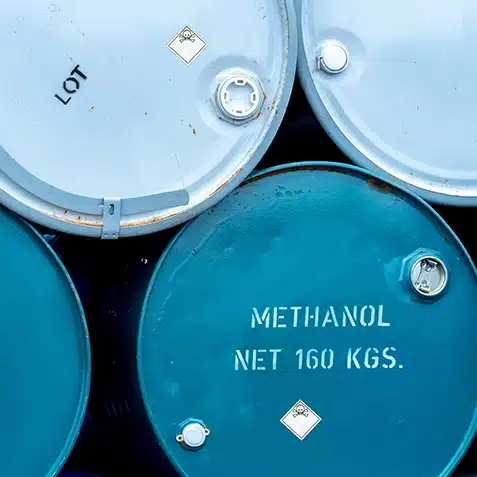Alternative Fuels
Short Course in Alternative Marine Fuels
About Alternative Marine Fuels
This course delves deeper into the subject of alternative marine fuels and providing fundamental knowledge on alternative marine fuels including; Liquefied Nitrogen Gas, Hydrogen, Methanol and Biomethane, Bioethanol and Biodiesel, Ammonia and Battery Powered Marine Systems.
On successful completion, students will receive a Certificate in Alternative Marine Fuels.


Duration:
6 months

Modules:
1 in total

Cost:
£295

Assessment:
20 Multiple Choice Questions
Need more information about our Short Course in Alternative Marine Fuels?
Alternative Marine Fuels Short Course includes:
Flexible Study Duration: Enjoy 6 months of online access, allowing you to study at your own pace, from anywhere in the world.
Learning Format: 100% online, with access to our student learning portal.
Assessment: Complete a 20 multiple choice online assessment when you have completed your studies.
Certification: Upon successful completion students receive a digital PDF certificate. A printed certificate completion pack is also available upon request.
Digital Course Badge: Upon successful completion students will receive an exclusive course badge for use on business cards, LinkedIn profiles and website(s)!
Short Course - £295
Ideal for anyone looking to get an introduction to the industry.
✔
✔
✔
✔
✔
Alternative Marine Fuels Curriculum: One Module
The online course consists of 1 module that must be completed within 6 months. The module consists of text, tables and pictures to assist in your learning. Following the completion of the course content, students must pass 20 multiple-choice questions with a score of 70% or higher.
Liquefied Natural Gas (LNG)
Introduction – LNG Marine Fuels
Evolution of LNG
LNG Properties
LNG Composition
LNG Advantages and Disadvantages
LNG and Marine Infrastructure Requirements
LNG Primary Marine Systems Overview
Hydrogen and Marine Systems
- Types of Hydrogen
- Hydrogen Production
- Production of Hydrogen Using a Steam Methane Reformer
- Hydrogen Associated with Marine Systems
- Hydrogen Advantages and Disadvantages
- Hydrogen Fire Protection and Extinguishing Systems
- Hydrogen: The Future
Methanol and Marine Systems
- Methanol
- Production of Methanol
- Advantages and Disadvantages of Methanol
- Hazards Associated with Methanol
- Methanol Fire Protection and Extinguishing Systems
Biomethane (Biogas)
- What is Biomethane?
- The Production of Biomethane
- Biogas/Biomethane – Fuel for Ships
- Advantages and Disadvantages of Biomethane
- Hazards of Biomethane
- Biomethane – Firefighting
(Bio) Ethanol
- The Difference between Ethanol and Bioethanol
- Production of Bioethanol and Descriptive Overview
- Bioethanol as a Fuel for Ships
- (Bio) Ethanol Advantages and Disadvantages
- Hazards of (Bio) Ethanol
- Firefighting and Fire Protection
Diodiesel
- Biodiesel as a Fuel for Ships
- Biodiesel Advantages and Disadvantages
- Marine Propulsion Systems – Biodiesel Hazards
- Biodiesel Fire Protection and Extinguishing Systems
Ammonia
- Types of Ammonia
- Ammonia Advantages and Disadvantages
- Hazards of Ammonia as an Alternative Marine Fuel
- Ammonia Fire Protection and Extinguishing Systems
Battery-Powered Marine Systems
- Types of Batteries
- Types of Hybrid (Battery) Propulsion Systems
- Marine Propulsion Batteries Advantages and Disadvantages
- (Li-ion) Battery Hazards
- Battery Fire Protection and Extinguishing Systems
- The Future of Batteries
Hear from our Students
Meet the Course Author
Ian Bryant
More recently from 2002 formed an independent offshore consultancy company carrying out a range of consultancy work including training/ competency for blue chip LNG ships & facilities/ offshore drilling/ offshore wind energy companies.
Other aspects of work include operations manuals for offshore and shipping assets as well as Failure Mode Effect Critical Analysis (FMECAs) for well-known offshore companies.

Why Choose The Maritime Training Academy?

Flexible
Online learning allows you to study in your own time, at your own pace from anywhere in the world. This saves on travel and classroom costs and allows you to fit your studies around your job and progress your career.

Supportive
While the nature of distance learning is independent study, we recognise the importance of support. Students can contact us at any time during their course for assistance and our team of industry experts are always on hand for advice.

Expertise
We have over 50 industry experts writing, developing and advising on our course material. We truly believe that allowing students to tap into their expertise and knowledge is of the utmost importance to fulfil your dream career.
If you would prefer to complete this as a classroom-based course, please contact us.
